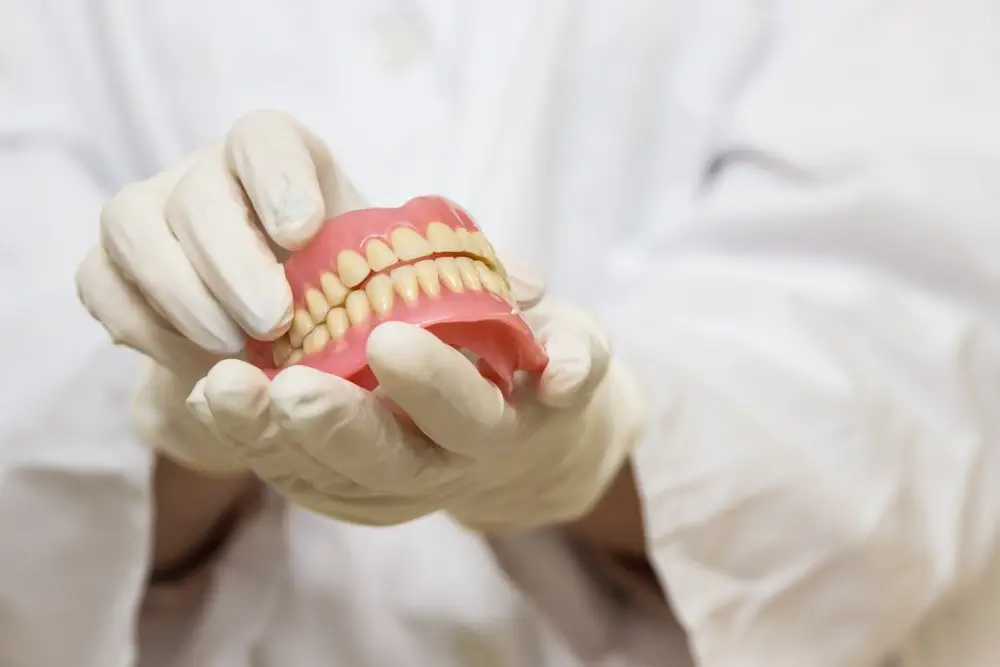Prosthodontics with ease at Smile Mantra
From consultation to completion: Navigating the world of Dentures and Crowns
At Smile Mantra, prosthodontics is a key area of expertise, focused on restoring and replacing missing teeth and oral structures. Using advanced techniques and custom solutions like dentures, crowns, bridges, and other prosthetics, we enhance both the function and beauty of your smile.

Dentures
Dentures are removable appliances designed to replace missing teeth and restore oral function and appearance. There are different types of dentures, each suited to specific needs.
1. Complete Dentures
Complete Dentures are used when all teeth in a dental arch are missing. They rest directly on the gums and provide full restoration of the dental arch.
- Types:
- Conventional: Placed after the gums have healed following tooth extraction, usually within 8-12 weeks.
- Immediate: Inserted immediately after tooth extraction, allowing the patient to avoid a toothless period. Adjustments are often needed as healing occurs.
- Materials:
- Acrylic Resin: Lightweight and easy to adjust. Commonly used for both bases and teeth.
- Porcelain Teeth: Durable and more resistant to wear but heavier and less shock-absorbent.
- Benefits:
- Restore full functionality for eating and speaking.
- Improve facial appearance by supporting cheeks and lips.
- Removable for cleaning and maintenance.
2. Partial Dentures
Partial Dentures are used when some natural teeth remain. They consist of replacement teeth attached to a gum-colored plastic base, connected by a metal or acrylic framework.
- Types:
- Acrylic Partial Dentures: Often referred to as “flippers,” these are more affordable and typically used as a temporary solution.
- Cast Metal Partial Dentures: More durable and stable, with a metal framework providing support.
- Flexible Partial Dentures: Made from a flexible resin, these are more comfortable and offer a more natural appearance.
- Benefits:
- Help prevent the remaining teeth from shifting.
- Restore natural appearance and functionality.
- Less invasive than fixed options like bridges.
Denture Materials
- Metal Dentures
- Material: Typically made from a cobalt-chromium alloy.
- Benefits: Durable, strong, and offers a thin, lightweight framework.
- Drawbacks: More expensive and less aesthetically pleasing due to visible metal parts.
- Resin Dentures
- Material: Acrylic resin is the most common.
- Benefits: Lightweight, easy to adjust, and affordable.
- Drawbacks: Less durable than metal and may require more frequent replacement.
- BPJ (Biofunctional Prosthetic System)
- Material: A specialized resin material designed to mimic the natural function and appearance of teeth.
- Benefits: Enhanced comfort and functionality, with a natural look.
- Drawbacks: Typically more expensive than standard resin.
- Flexible Dentures
- Material: Made from flexible thermoplastic resin (e.g., Valplast).
- Benefits: Comfortable, lightweight, and blend well with natural tissues.
- Drawbacks: Less durable and harder to repair than traditional dentures.
Dental Crowns
Dental Crowns are caps placed over damaged or decayed teeth to restore their shape, strength, and appearance. Different materials are used depending on the specific needs and preferences of the patient.
Types of Crowns
- Zirconium Crowns
-
- Material: Made from zirconium oxide, a strong, biocompatible ceramic.
- Benefits: Extremely durable, with excellent aesthetics and resistance to chipping.
- Drawbacks: Higher cost compared to other materials.
- PFM (Porcelain-Fused-to-Metal) Crowns
-
- Material: A metal alloy core covered with porcelain.
- Benefits: Strong, with a good balance of durability and aesthetics.
- Drawbacks: The metal base can sometimes show through the porcelain, especially at the gum line.
- OMLS (All-Ceramic/Ceramic-Metal Crowns)
-
- Material: Made from various ceramic materials, often fused to a metal core.
- Benefits: Highly aesthetic with a natural appearance.
- Drawbacks: May be less durable than all-metal crowns, particularly in areas with high bite pressure.
- Metal Crowns
- Materials: Stainless steel (SS), titanium, gold alloys, or other metal alloys.
- Benefits: Extremely durable and less prone to wear.
- Drawbacks: Less aesthetic, often used for molars or in pediatric dentistry.
- Stainless Steel Crowns: Often used as temporary crowns, especially in pediatric patients.
- Titanium Crowns: Lightweight, strong, and biocompatible, suitable for patients with metal allergies.
Obturator
Obturators are prosthetic devices used to close congenital or acquired defects of the hard palate, such as those caused by cleft palate or after surgery for oral cancer.
- Types:
- Surgical Obturator: Used immediately after surgery to close the defect.
- Interim Obturator: Used during the healing process.
- Definitive Obturator: Long-term solution, designed for permanent use after healing.
- Benefits:
- Restores the ability to eat, speak, and breathe normally.
- Helps improve quality of life for patients with significant oral defects.
Precision Attachments
Precision Attachments are mechanical devices used to connect removable partial dentures to fixed crowns or bridges. They provide a more aesthetic and functional alternative to traditional clasps.
- Types:
- Intracoronal Attachments: Located within the crown, providing a hidden connection.
- Extracoronal Attachments: Located outside the crown, providing additional support.
- Benefits:
- Improved aesthetics due to the absence of visible clasps.
- Enhanced stability and comfort for partial dentures.
- Allow for a more natural look and better distribution of bite forces.
